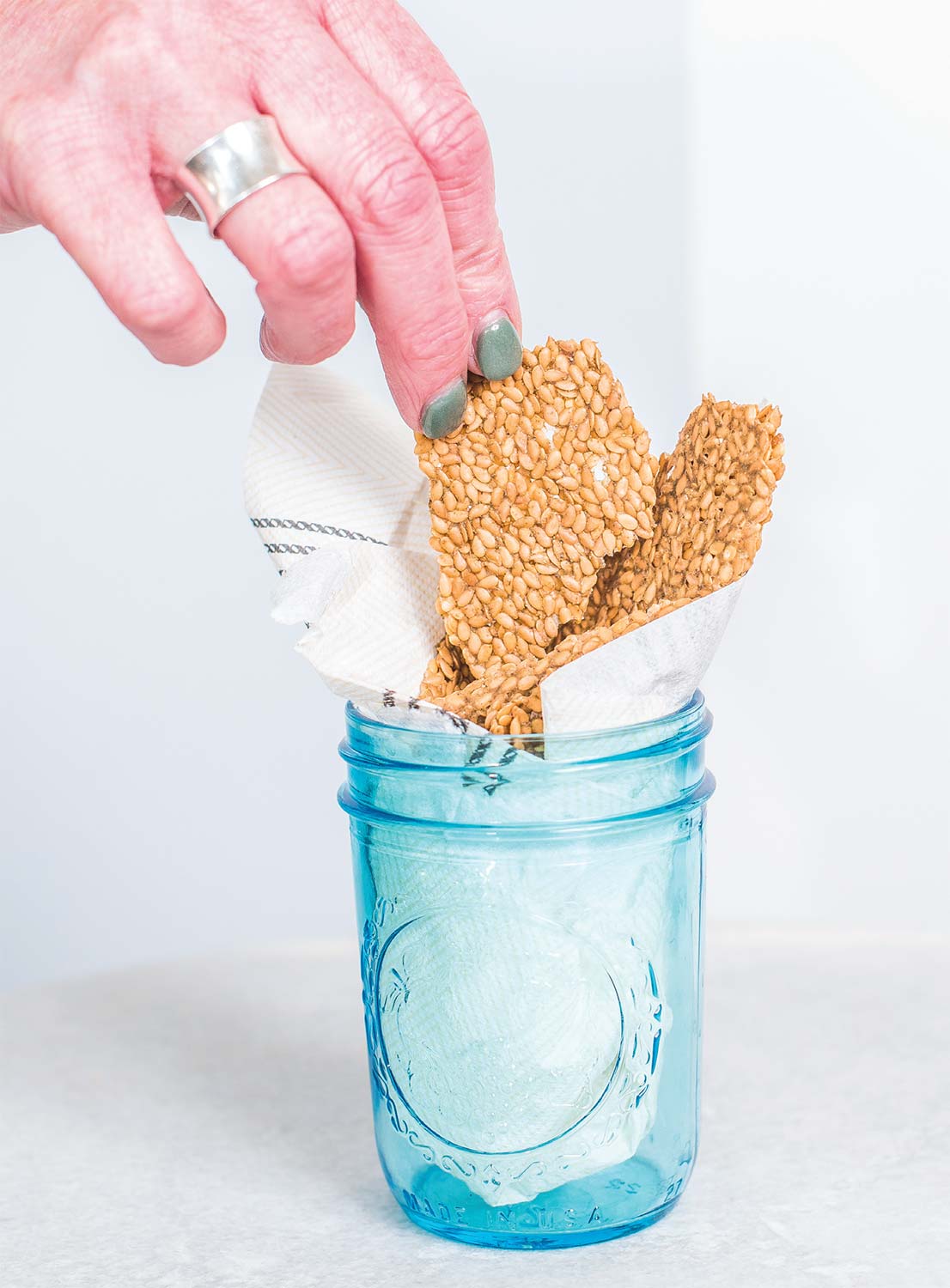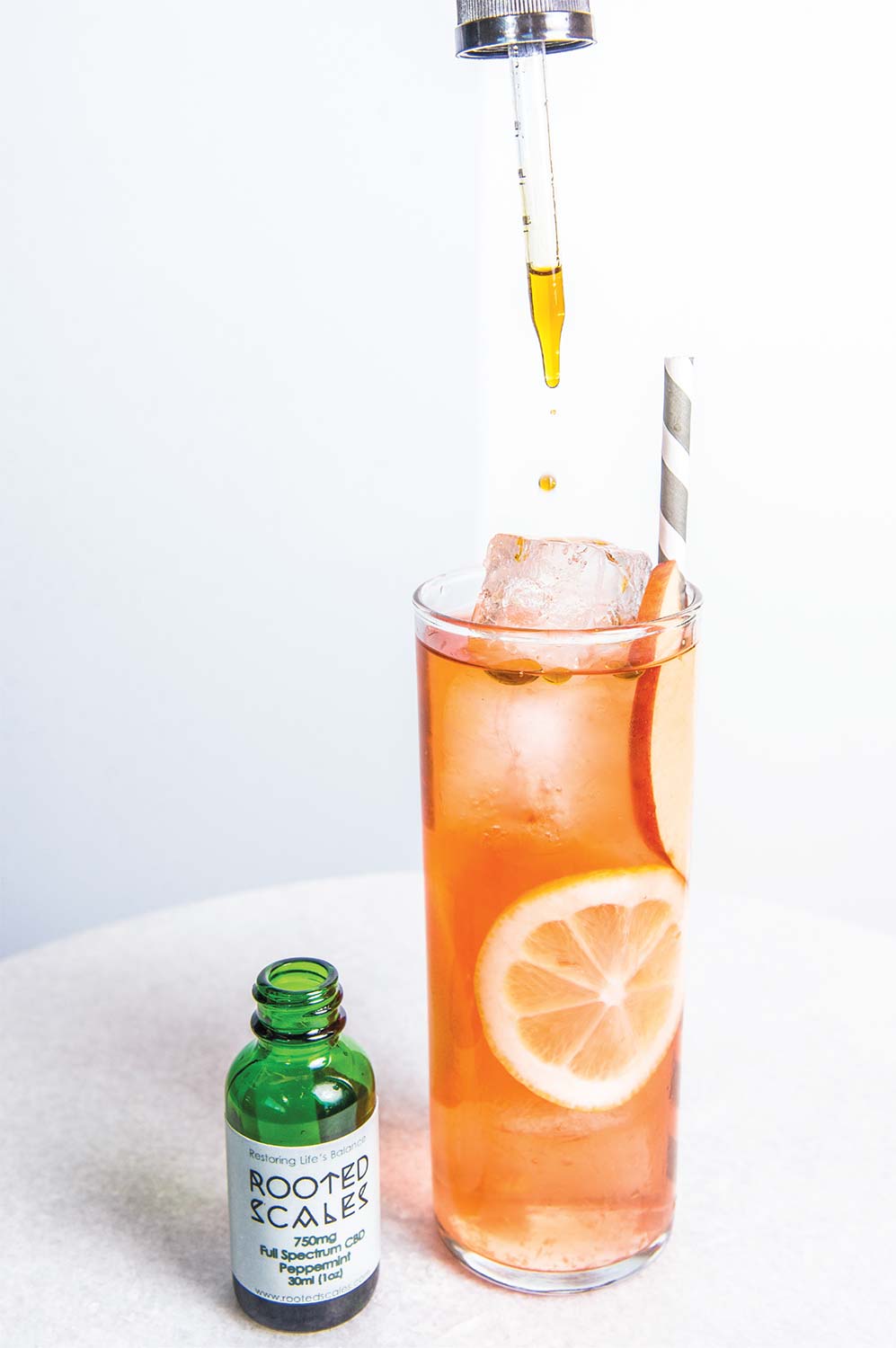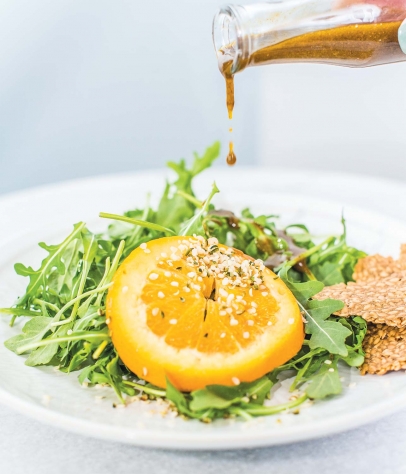The Many Faces of Hemp
Long-taboo crop may benefit body, mind and spirit—and Indiana agriculture
One of the first domesticated crops, hemp is a powerhouse plant prized for its nutritious seed, its strong fiber and its extracted cannabidiol (CBD) oil, which is purported to have many health-supporting effects. In recent history, hemp has struggled under a case of mistaken identity due to common confusion with its botanical cousin, marijuana (see Edible Indy’s Spring 2019 issue). Yet with the federal legalization of hemp under the 2018 Farm Bill, or the U.S. Agricultural Improvement Act of 2018, Americans are busy rediscovering this plant and its impressive myriad uses.
A VEGAN SUPERFOOD
“Hemp seed is arguably a superfood,” says Erica McBride Stark, executive director of the National Hemp Association. The Pennsylvania farmer and American hemp industry advocate refers to hemp seed, the fruit or nut of the plant, as “the most nutritious seed on earth.”
The seed is generally hulled into what the industry calls “hemp hearts.” The seed’s hard exterior shell is removed, leaving a chewy, edible interior that features a mild, nutty flavor and has the appearance of a processed nut. A favorite for sprinkling on salads, yogurt or adding to smoothies, hemp hearts can also be used as a base for granola, energy bars, crackers and bread, amongst a range of other culinary options. The seed can be further milled into a powder.
Nearly 100% digestible, the vegetable protein is high in omega-3 and omega-6 fatty acids, as well as amino acids, fiber and many vitamins and minerals like calcium, magnesium and iron.
“For people looking for clean sources of protein—not animals—hemp is a powerhouse of vitamins, minerals and nutrients,” says Matt Alvord, says vice president of Foods Alive, a family-owned company based in Angola, Indiana, that sells gourmet, organic, whole-food products to grocers across the country.
“We’ve seen the sales of our hemp products increase every year,” Alvord says. “We are seeing demand for hemp-based products from not only natural food stores but also from mainstream grocers.”
According to the National Restaurant Association’s 2019 “What’s Hot Culinary Forecast,” 77% of the 650 professional chefs surveyed this year said that “cannabis/CBDinfused drinks” will be the top culinary trend of the year. In addition, 76% of respondents anticipate that “cannabis/CBD-infused food” will be the second-most-popular industry trend of 2019.
 Rosemary Hemp Flaxseed Crackers, FoodsAlive.com
Rosemary Hemp Flaxseed Crackers, FoodsAlive.com
The company imports most of the hemp components it uses in its product line from Canada, where hemp cultivation has been legal since 1998. Foods Alive has recently also purchased from suppliers in North Dakota. The company would prefer to buy entirely from organic American sources, Alvord says. As a member of the Indiana Hemp Industries Association, a nonprofit trade group devoted to the development of an Indiana hemp industry, Foods Alive hopes to one day purchase from organic hemp growers and processors in Indiana, according to Alvord.
Hemp oil, which is extracted from the seed through a cold press, is a nutritious option, too. You can use it as a finishing oil on salads or drizzled in soup, pasta or rice. Stored in the grocer’s cold case, the green-hued oil has a mild nut-like taste with slight hints of earthiness. Due it its low smoke point, the oil is not suitable for cooking or frying and shouldn’t be heated over 300°F.
Hemp milk, an alternative to animal, soy and nut milks, can also be made from the plant’s hulled seed. Blended with water and then filtered, the milk has a slightly creamy consistency and is a great alternative for consumers facing food allergies.
 Tempt Brand Hemp Milk Goose the Market
Tempt Brand Hemp Milk Goose the Market
THE CALM IN CBD
CBD is one of more than 100 cannabinoids, or chemical compounds, that can be extracted from the cannabis plant. From infused beer and soda to caramels, cookies and ice cream, CBD is popping up on menus and in store aisles across the country. Proponents claim that the compound can provide a range of calming effects without the psychoactive impact caused by tetrahydrocannabinol (THC), the ingredient that gives marijuana its kick but is barely present in hemp.
According to the National Restaurant Association’s 2019 “What’s Hot Culinary Forecast,” 77% of the 650 professional chefs surveyed this year said that “cannabis/ CBD-infused drinks” will be the top culinary trend of the year. In addition, 76% of respondents anticipate that “cannabis/ CBD-infused food” will be the second- most-popular industry trend of 2019.
CBD-infused products have also found a home in the wellness and beauty industries. Though research on the compound is still in its infancy, initial findings have shown that the supplement may help to treat anxiety, chronic pain and inflammation.
At CBD American Shaman Indy, opened in September 2018 in Indianapolis’s Broad Ripple Village, a variety of oils, lotions, bath bombs and candies containing CBD are sold. The shop’s most popular product, CBD oil, is packaged in several formats: as a tincture for use under the tongue, as a water-soluble oil, in a capsule, as an edible or as a liquid to be vaped.
Most customers prefer the watersoluble product, says Kerry Hinkle, the store’s manager, as the product contains an emulsifier that enables the molecules in the oil to bond with water thus allowing better absorption by the body.
“It’s an all-natural way to just feel a little bit better,” Hinkle says. “It’s not an ‘end all, cure all’ but it’s another tool in the tool kit to help you manage your everyday stress and struggles.”
With little regulation in the American CBD market currently, it’s important to research and understand the CBD product one is purchasing to ensure it’s of high quality, Hinkle says. He recommends only purchasing oils labeled “full spectrum,” which denotes that all the plant’s cannabinoids have been extracted and included in the final product.
“In Indiana there must be a QR code on the label of any CBD product,” says Jared Huston, who co-manages The Mill CBD in Carmel, Indiana. “You scan that code and see the lab results of the product. I think that’s great. We were one of the first states to require that code.”
Huston says that The Mill CBD, opened in early 2019, has been warmly welcomed and has already exceeded projected revenue. “Market demand has been amazing,” he says. “We are at a level that we didn’t project for three to six months.”
In the beauty aisle, products made with hemp seed oil are increasingly recognized for their hydrating properties that are complementary to a variety of skin types. Perhaps the most famous of these is Dr. Bronner’s Magic Soaps, a California company founded in the 1940s. The all-natural, organic line contains hemp seed oil and can be used to wash skin and hair or brush teeth, as well as for a host of household cleaning tasks. A bar of the yellow-hued lavender-infused soap smells floral and earthy and leaves the skin feeling clean, invigorated and refreshed.
Visit EdibleIndy.com for our story about FlexForm Technologies in Elkhart, Indiana, and how they have used natural fibers, including hemp, to build composite materials for the automotive, aircraft and office industries.
 Full Spectrum CBD Oil, RootedScales.com
Full Spectrum CBD Oil, RootedScales.com





